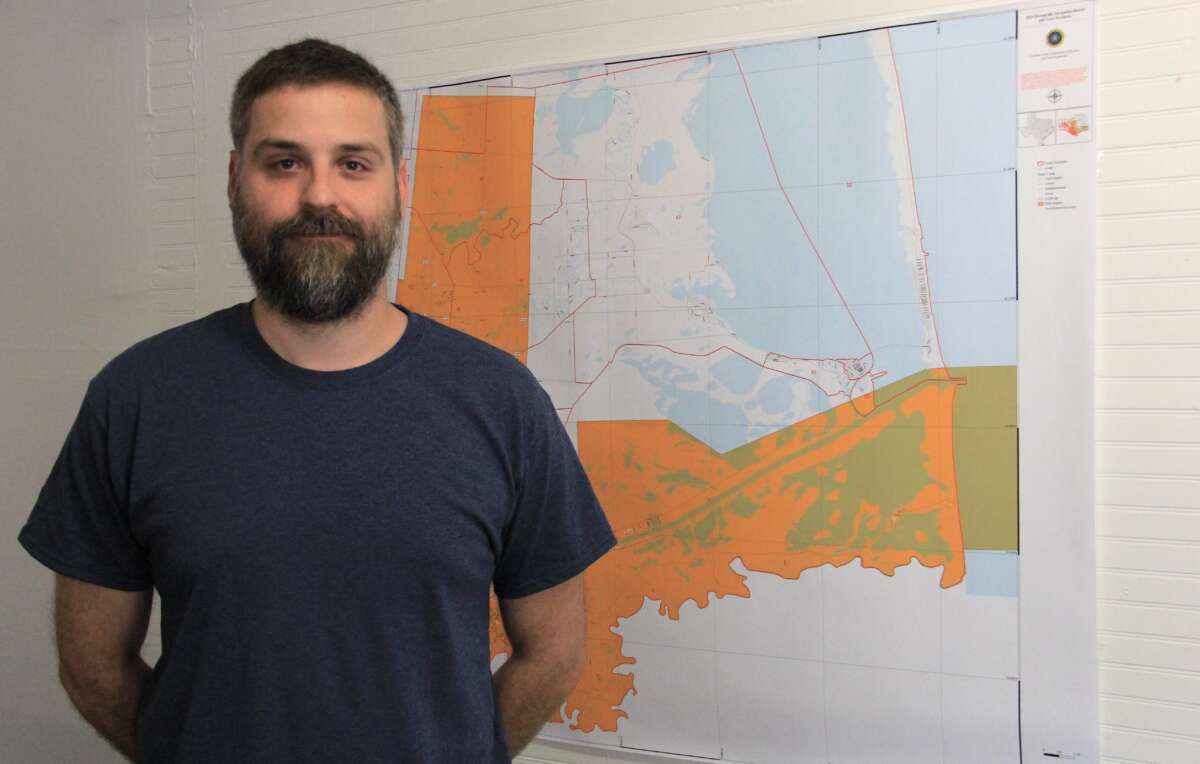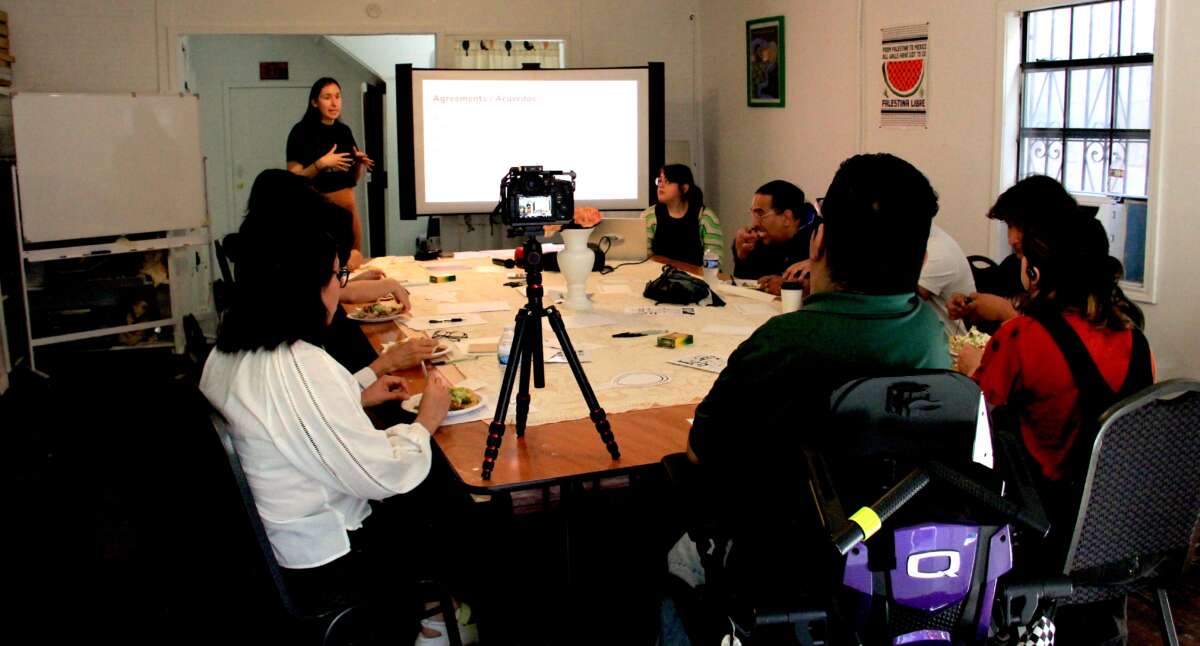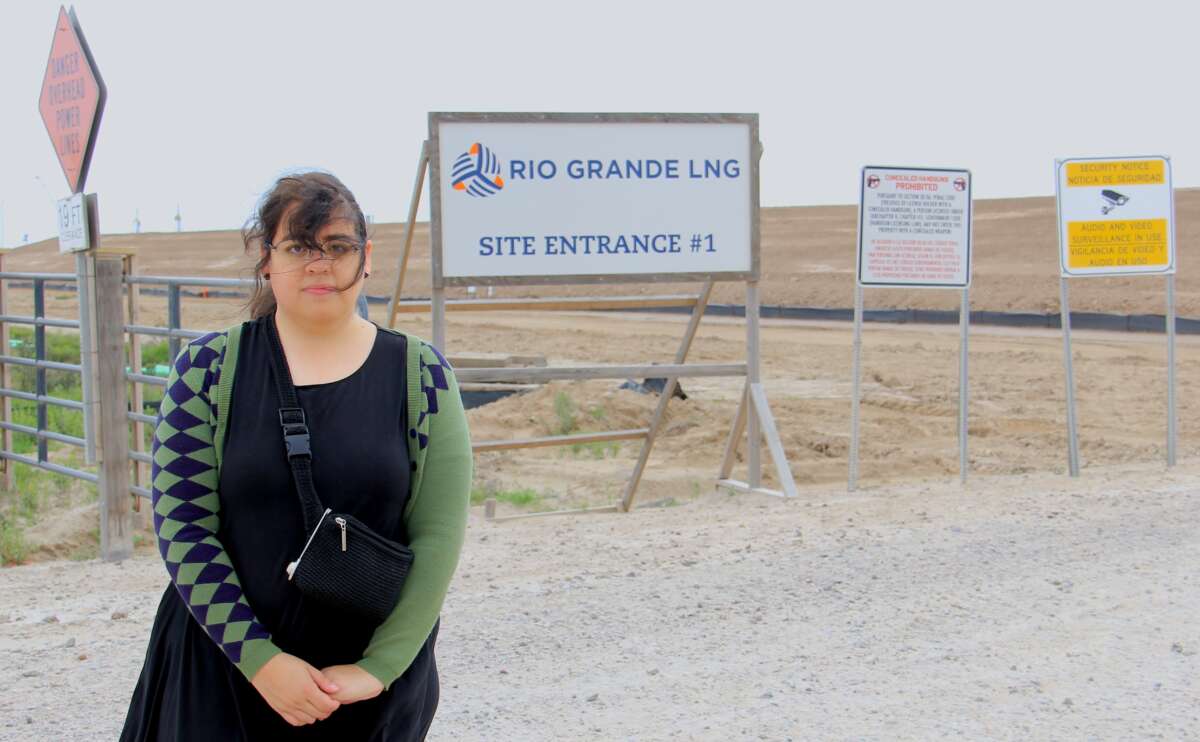In late March, Texas joined a 15-state federal lawsuit led by Louisiana to block the Biden administration’s executive order pausing new permits for terminals that export fracked gas, or so-called liquefied natural gas (LNG). Separately, according to the Dallas Morning News, Texas House Speaker Dade Phelan created a special committee to investigate President Joe Biden’s permitting freeze, which has sparked backlash from not only the oil industry and Texas GOP, but also Republicans on Capitol Hill.
Texas’s moves follow House Republicans’ February passage of House Resolution 7176, a bill that would reverse President Biden’s permitting pause by stripping the Department of Energy (DOE) of the power to approve LNG exports to non-free trade agreement countries, instead leaving that responsibility solely with the Federal Energy Regulatory Commission (FERC).
But Biden isn’t just facing backlash from the right. More than 560 environmental, climate, health and advocacy organizations around the world signed a March letter calling on the administration to expand the permitting freeze across all federal agencies and commissions in order to stop all pending LNG exports and fossil fuel infrastructure to bring the United States in line with the International Energy Agency’s (IEA) assessment that no new fossil fuel infrastructure can be built if the world is to stay within the scientifically determined safe limits of planetary warming.
Even as Biden’s export pause could impact at least six export terminals currently being considered on U.S. coasts, the nation’s LNG exports — the largest of any country in the world — are still set for rapid growth. At least seven LNG projects that would nearly double the country’s export capacity by the end of 2027 have already gained FERC approvals and are under construction.
One of those seven facilities is the Rio Grande LNG terminal, which has been in its land clearing, or “site preparation,” phase in South Texas’s Port of Brownsville since October 2022 — with wetlands, mud flats and sacred Indigenous lands being bulldozed in the process. That facility — along with another proposed LNG export terminal, at least two separate pipeline projects and Elon Musk’s SpaceX launch facilities — are already causing irreparable damage to an important wildlife corridor critical to the survival of the endangered ocelot. The projects’ emissions and explosion risks are already disproportionately impacting the low-income, majority-Latiné communities in Brownsville’s Laguna Madre area.
Brownsville resident Bekah Hinojosa, who co-founded the South Texas Environmental Justice Network in 2020, is one impacted Gulf Coast resident who signed a letter last month to President Biden and Energy Secretary Jennifer Granholm sharing key priorities that Gulf South communities want incorporated into the DOE’s new review of criteria determining whether an application for a gas export is in the public interest.
In fact, Hinojosa signed the letter after traveling to Washington, D.C., in early February to meet directly with DOE officials after President Biden announced the export freeze. Later in March, she met with a separate set of DOE officials within the Office of Fossil Energy and Carbon Management as they attended the annual oil industry conference CERAWeek in Houston. During that meeting, she asked the office’s assistant secretary, chief of staff and director to specifically include Brownsville’s LNG projects in the freeze and that the agency’s new review process incorporate an environmental justice analysis that includes tribal consultation.
“We didn’t get any strong commitments from DOE officials, no clear guidelines or understanding of how long the pause might take, or what exactly they’re going to review,” Hinojosa told Truthout of the meeting. Office of Fossil Energy and Carbon Management officials did not respond to Truthout’s request for a follow-up.
“We didn’t get any strong commitments from DOE officials, no clear guidelines or understanding of how long the pause might take, or what exactly they’re going to review.”
The two terminals, NextDecade’s Rio Grande LNG and Glenfarne Group’s Texas LNG, are slated to export liquefied fracked gas from the Eagle Ford and Permian shale basins through the Port of Brownsville. While Rio Grande LNG has achieved its Final Investment Decision (FID) and funding for liquefaction infrastructure at the proposed site, Texas LNG has yet to receive FID or begin devastating the ecology, meaning it can more easily be knocked off track.
The projects, Hinojosa says, not only represent ongoing forms of environmental racism against the Carrizo/Comecrudo tribe of South Texas and surrounding Latiné communities, but also cause deleterious climate impacts: The two terminals and the Rio Bravo Pipeline would emit “as many greenhouse emissions as approximately 40.4 million cars on the road per year,” according to the Rainforest Action Network (RAN). Moreover, according to RAN, if the U.S. is to decrease the LNG trade by 60 percent required over the next decades, as the IEA outlines as necessary to achieve net-zero emissions by 2050, “we cannot afford to add any new LNG infrastructure” whatsoever.
Worse, the terminals are next to a shipping channel where people fish and shrimp, just across the highway from the Bahia Grande of the Laguna Atascosa National Wildlife Refuge, and only miles from Elon Musk’s SpaceX Starbase — close enough to catch debris from SpaceX rocket launches that could present an explosion risk for nearby communities, Hinojosa warns.

Hinojosa, who has been fighting the two terminal projects since at least 2015, tells Truthout that her community has now thrice been effectively rendered a sacrifice zone — first by the industry and local officials, then by the Biden administration, and most recently by the Texas Parks and Wildlife Department, which recently approved a land swap that hands 43 acres of Cameron County’s Boca Chica State Park to Musk’s SpaceX in exchange for 477 acres adjacent to the wildlife refuge. Three groups, including hers, filed suit against the Department last week.
“We always knew that FERC was going to disappoint us, and that the DOE was going to keep selling us out,” she tells Truthout, adding that she and other Gulf South activists in Brownsville are continuing to scale up their opposition efforts despite being passed over by Biden. “We need a really strong environmental justice network throughout the Gulf to continue to push back together.”
“We always knew that FERC was going to disappoint us, and that the DOE was going to keep selling us out.”
Hinojosa is working closely with Christopher Basaldú of the Carrizo/Comecrudo tribe to combat Texas LNG’s plans to raze Garcia Pasture, a federally recognized Indigenous village and gravesite. The site contains the remains and cultural artifacts of a pre-Columbian village and the various nomadic cultures who lived there, including the Carrizo/Comecrudo.
The tribe is working toward state and federal recognition, the latter of which would grant them protections under the 1990 Native American Graves Protection and Repatriation Act and section 106 of the 1966 National Historic Preservation Act. Still, members like Basaldú point out that it isn’t for the government to determine whether they exist.
Basaldú says none of the fossil fuel projects going up at the port of Brownsville have meaningfully consulted with the tribe, and he remains highly doubtful the administration’s new review process will include substantive tribal consultation — especially for tribes like the Carrizo/Comecrudo who are not officially recognized on the state or federal level. He sees the administration’s permitting pause as simply a cynical campaign ploy to regain votes from youth and other constituencies of color Biden has lost due to his support of Israel’s ongoing genocide of Palestinians in Gaza.
“The [LNG permitting] pause is only temporary. It’s not a humanitarian pause,” Basaldú tells Truthout. “It’s not a permanent ceasefire of the fossil fuel industry against Indigenous communities, Native communities, and poor Black and Brown communities, fishing communities, coastal communities. It’s not a permanent ceasefire in the war of the fossil fuel industry against life itself.”

In 2021, an unstable global LNG market lent Rio Grande Valley organizers an assist in defeating a third proposed terminal, Annova LNG. Hinojosa says the pandemic-driven gas price plunge, combined with a Sierra Club lawsuit and community opposition, led to its cancellation. The community’s victory over Annova, she says, shows the validity and urgent necessity of the community’s continued fight against the two other on-track terminals.
“The [LNG permitting] pause is only temporary. It’s not a humanitarian pause…. It’s not a permanent ceasefire in the war of the fossil fuel industry against life itself.”
Still, the local movement in Brownsville isn’t waiting on the Biden administration, or anyone else for that matter, to save them. The South Texas Environmental Justice Network has gained steam in recent months, receiving grant money to support their first office space downtown while they continue to target the banks, private equity firms, pension funds and insurance companies invested in the terminal projects.
Hinojosa and the Carrizo/Comecrudo tribe successfully pressured French banks BNP Paribas and Société Générale to withdraw support from the LNG projects in 2017 and 2023, respectively. They’re now setting their sights on Italian and Spanish banks Intesa Sanpaolo and Banco Santander. In addition to lawsuits against FERC for reauthorizing the projects even after their permits were initially rescinded, the group is also fighting Cameron County commissioners’ consideration to award Texas LNG with a tax abatement.
Hinojosa is also helping assist a slate of candidates running for seats on the Brownsville Navigation District Board of Commissioners, who help oversee and manage businesses operating in the Port of Brownsville. Texas Commission on Environmental Quality waste investigator Patrick Everitt was among the candidates who showed up to Hinojosa’s office on a Saturday afternoon in late March to meet about the campaign’s ongoing canvassing efforts in the run-up to the May 4 election.

Everitt told Truthout he’s running for Place 1 in order to platform activists alternative vision for the port. The current port commissioners, he says, see a future premised on LNG exports. “We all know that that’s not the future for us…. We want renewable infrastructure that’s actually taking carbon out and actually doing different types of climate-resilient infrastructure or other projects that include climate solutions,” he tells Truthout.
If elected, Everitt says his first priorities would be reviewing the LNG terminals’ leasing agreements and looking into what kind of funding the port and its commercial fishing industry could receive for renewable technologies from Biden’s 2021 Infrastructure Investment and Jobs Act. In addition to raising awareness about the environmental harms of LNG, Everitt is also running to highlight poor labor conditions for current and future workers at the planned terminals.
The night before the canvassing meeting, Hinojosa, Basaldú, and other area activists hosted an event focusing on changing local narratives about polluting industries at the port — including flipping the script about the so-called economic opportunities that the planned terminals and SpaceX supposedly bring to the community.

Rather, Everitt and others point out, polluting industries simply use up majority-Latiné workers in the area, who suffer disproportionate rates of cancer and respiratory issues. Additionally, activists’ say Musk’s SpaceX venture only further colonizes the area, bringing increased ecological destruction and earthquakes in addition to explosion risks.
“I see LNG and SpaceX as main arteries to the fueling of this blood machine.”
In fact, Everitt says he initially supported Musk’s SpaceX venture at the port before the company did a bait and switch, as he puts it. “They came in saying 12 launches per year, initially … proposed with smaller capacity, smaller rockets, and then [the company] just changes up to this much larger complex, and it keeps going and going,” Everitt says. Moreover, he says, SpaceX is “tethered to the military-industrial complex. And so that’s where, for me, I am very militantly anti-imperialist. I see LNG and SpaceX as main arteries to the fueling of this blood machine.”
Organizers say SpaceX and the LNG terminals are also intimately tied to ongoing border militarization and violence against asylum seekers attempting to cross the U.S.-Mexico border — many of whom are fleeing climate-fueled disasters themselves.
“Both parties continue to throw border communities under the bus and continue to use us as a bargaining chip,” Hinojosa tells Truthout. “We’ve seen the Democrats in Texas and beyond greenlight their support for SpaceX. Locally, we’ve seen border militarization and border wall construction still happening … and the situation with asylum seekers not getting support and being brutalized by Border Patrol is just increasing. And now, just this extra layer of … we’re being left out again, and [the Biden administration is] allowing the fossil fuel industry to still have these LNG export terminals and go about their day at the expense of our community.”
Press freedom is under attack
As Trump cracks down on political speech, independent media is increasingly necessary.
Truthout produces reporting you won’t see in the mainstream: journalism from the frontlines of global conflict, interviews with grassroots movement leaders, high-quality legal analysis and more.
Our work is possible thanks to reader support. Help Truthout catalyze change and social justice — make a tax-deductible monthly or one-time donation today.
